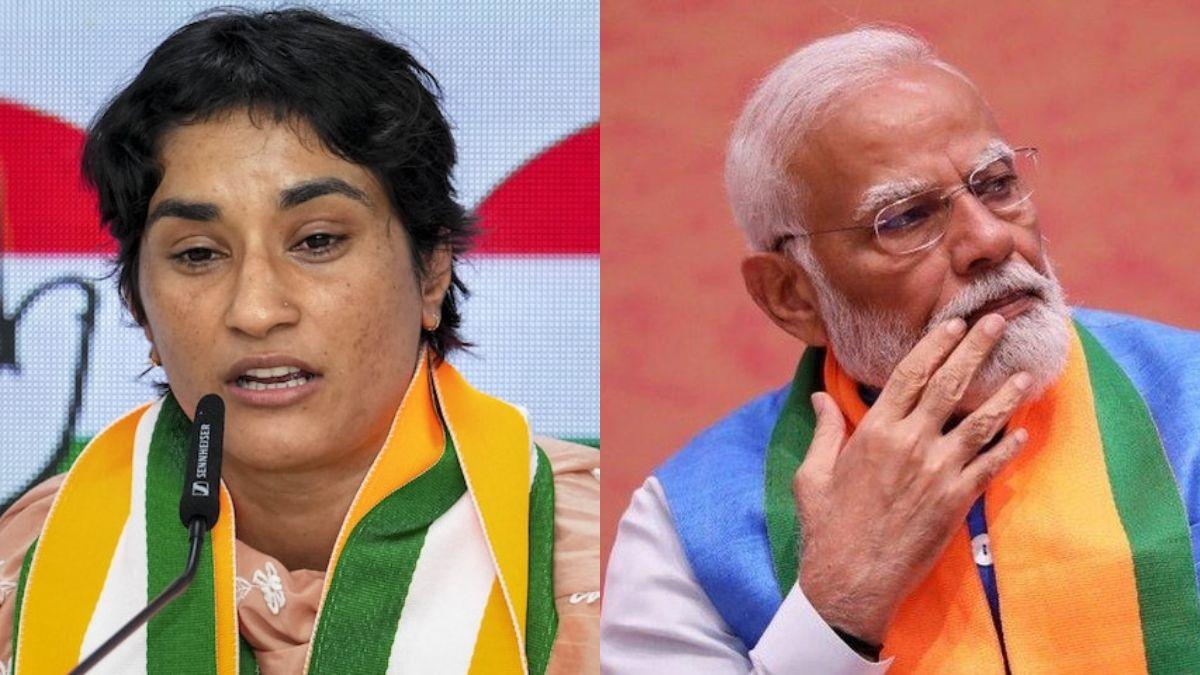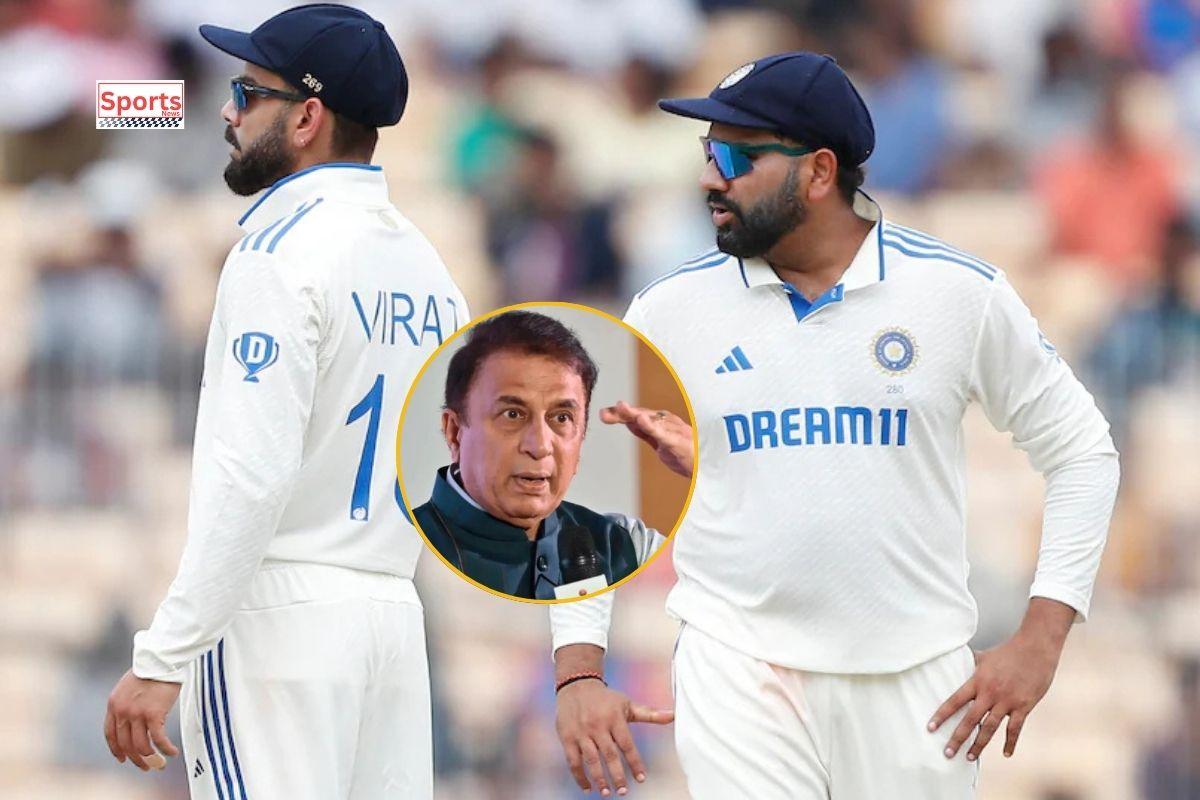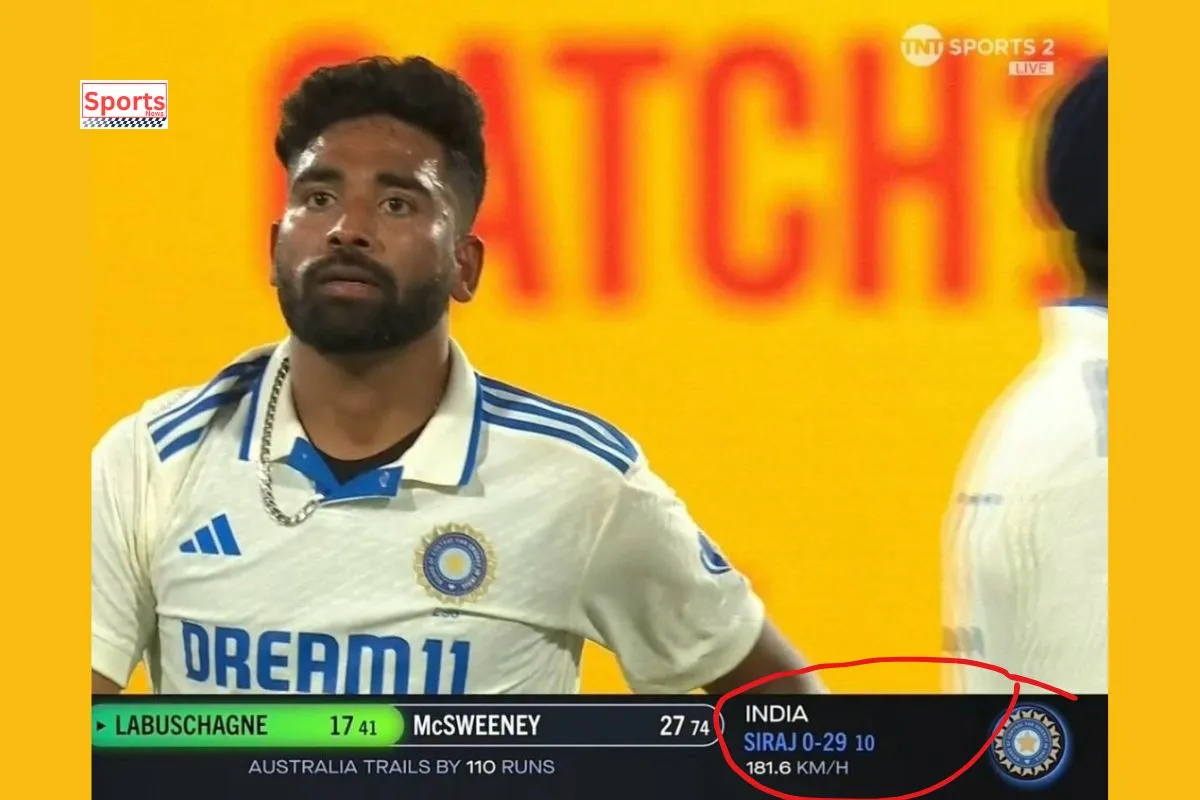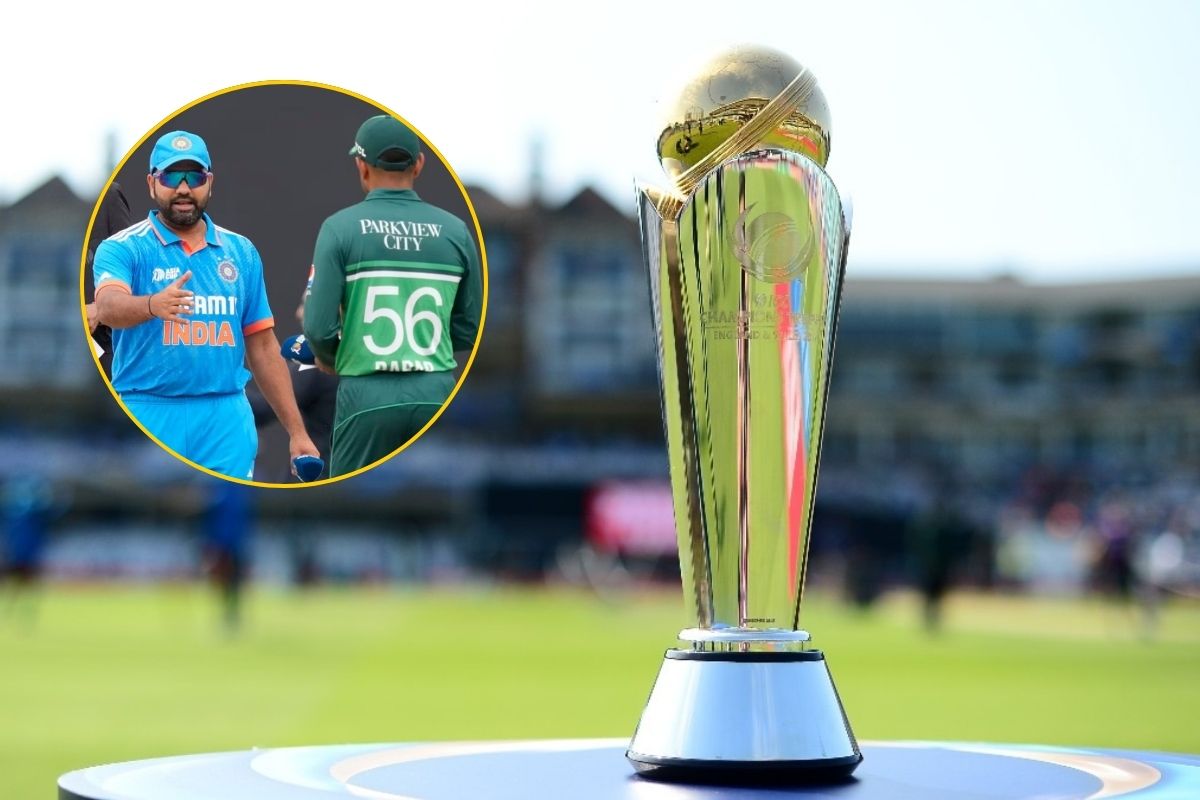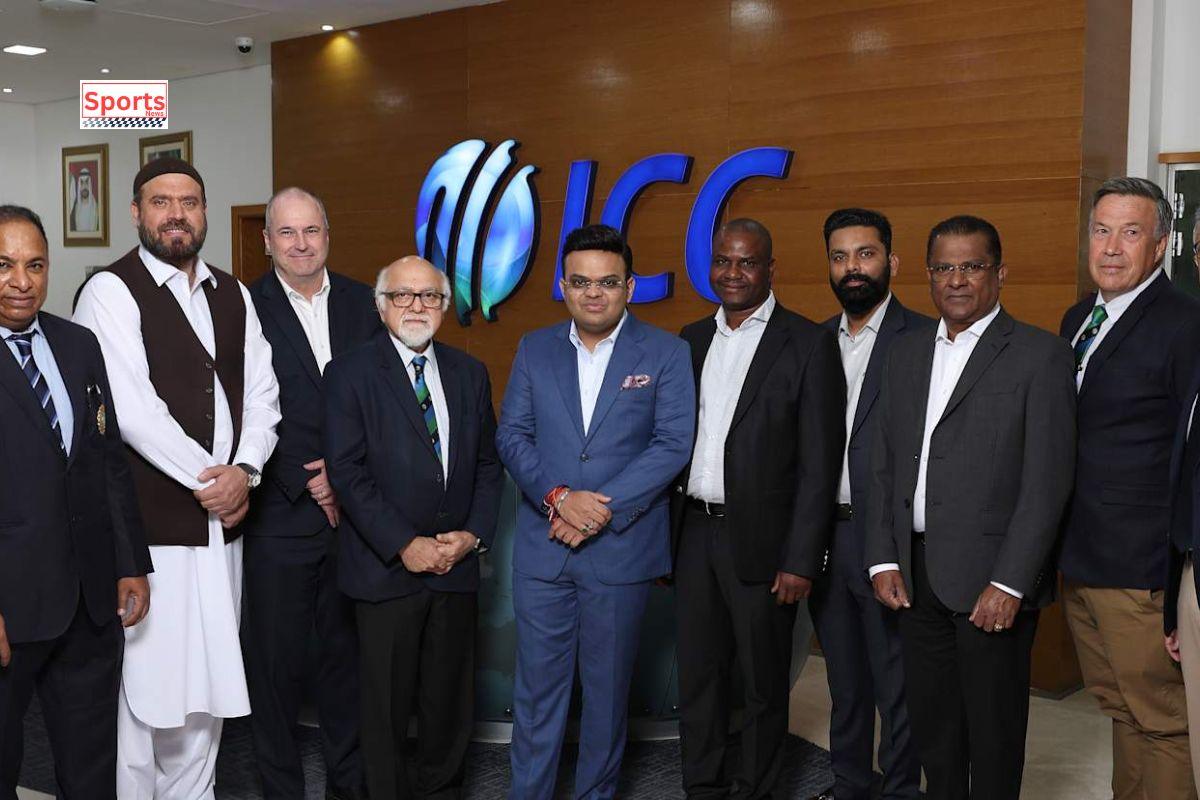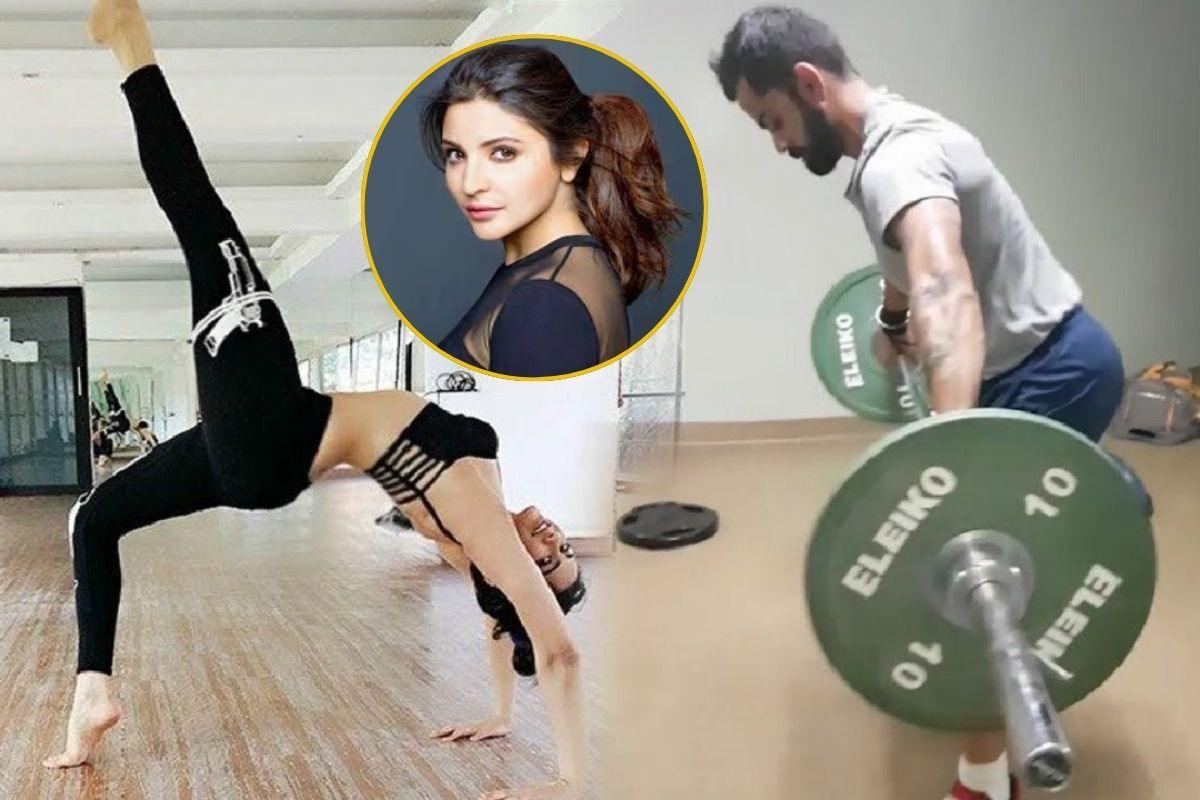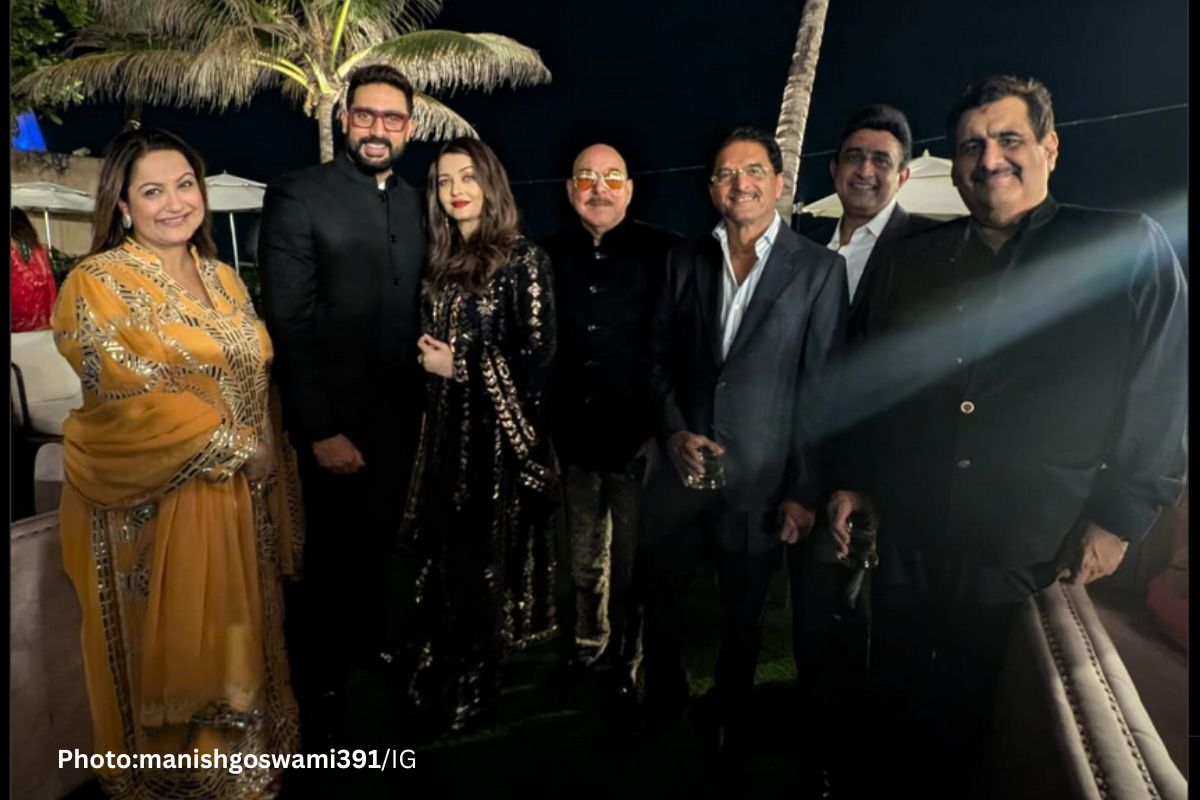Vinesh Phogat reveals why she declined PM Modi’s call after being disqualified from Paris 2024 Olympics due to weight issues. Explore her transition into politics and advocacy for athlete rights amidst ongoing controversies in Indian sports.
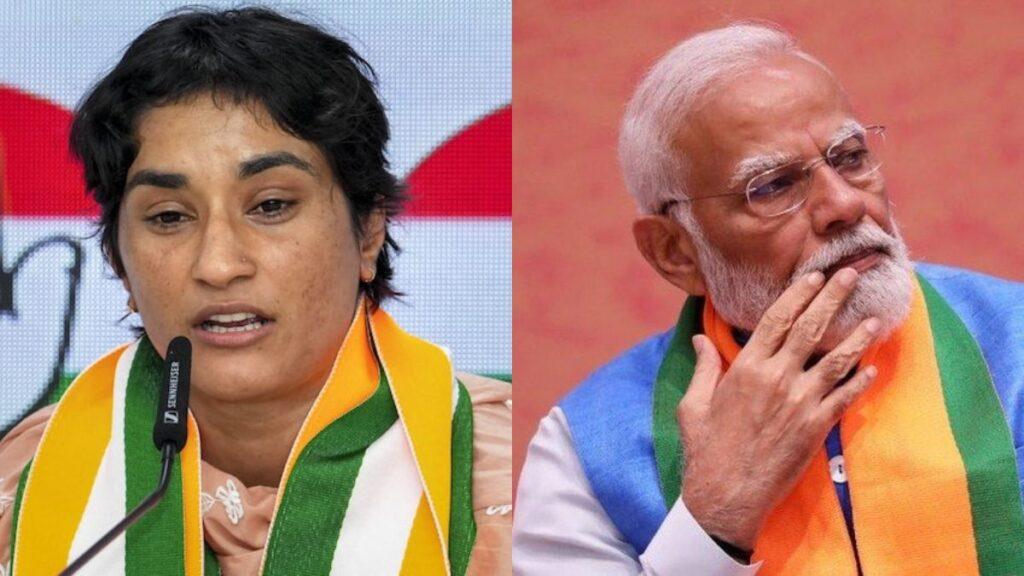
In a shocking turn of events at the Paris 2024 Olympics, Indian wrestler Vinesh Phogat was disqualified from the women’s 50kg wrestling category due to being overweight. This disqualification occurred just before her highly anticipated gold medal match, where she was set to compete against USA’s Sarah Hildebrandt. The incident has not only drawn attention to the stringent regulations governing weight categories in wrestling but has also sparked a significant political discourse as Vinesh transitions from sports to politics.
The Disqualification Incident
On August 7, 2024, Vinesh Phogat, a three-time Commonwealth Games champion, faced a devastating setback when she was found to be 100 grams overweight during the weigh-in for her final match. This disqualification came despite her impressive performance leading up to the final, where she had defeated top contenders, including defending Olympic champion Yui Susaki of Japan and European champion Oksana Livach of Ukraine. The Indian Olympic Association (IOA) confirmed that despite their efforts to appeal for more time for her to meet the weight requirement, their pleas were ultimately denied.
The rules governing wrestling competitions are strict; any failure to meet weight requirements results in immediate disqualification. This incident has raised questions about the pressures athletes face and the rigorous demands of competitive sports.
read more: Netanyahu Reacts: Israel’s PM Addresses Iran’s Attack on Israel
Vinesh Phogat’s Reaction and Political Shift
Following her disqualification, Vinesh Phogat expressed her disappointment and frustration not only with the situation but also with the broader context of sports governance in India. In a recent interview, she revealed that Prime Minister Narendra Modi reached out to her after the incident. However, she declined to engage in conversation with him due to conditions imposed by officials present during the call.
Vinesh recounted that she was informed by Indian officials in Paris about PM Modi’s desire to speak with her, but they insisted that the conversation be recorded for social media. She stated, “If the PM really sympathized, he could talk to me without video recording.” This refusal highlights her dissatisfaction with how her emotional state was being treated as a spectacle rather than a genuine concern for her well-being.
This incident is particularly poignant as Vinesh has recently entered politics, contesting as a candidate for the Congress party in the Haryana assembly elections from the Julana constituency. Her political ambitions come at a time when she feels compelled to advocate for athletes’ rights and better governance in sports administration.
The Broader Context: Athlete Advocacy and Governance
Vinesh Phogat’s situation is emblematic of larger issues within Indian sports, particularly concerning athlete welfare and governance. Her outspoken nature regarding her experiences—especially during protests against former Wrestling Federation of India chief Brijbhushan Sharan Singh—has resonated with many athletes who feel marginalized or unsupported by governing bodies.
In her interviews, Vinesh has not shied away from criticizing the Indian Olympic Association (IOA) president PT Usha, accusing her of engaging in political maneuvering during critical moments for athletes. This reflects a growing sentiment among athletes who are increasingly vocal about their treatment and the need for systemic changes within sports administration.
Public and Media Response
The media has closely followed Vinesh’s journey from athlete to political candidate, framing her story as one of resilience and determination. Public reactions have been mixed; while many support her transition into politics and see it as an opportunity for change, others have criticized her for not accepting responsibility for her disqualification.
Notably, fellow wrestler Yogeshwar Dutt publicly criticized Vinesh’s stance, suggesting that she should have apologized for her mistake rather than framing it as a conspiracy against her. Such comments illustrate the divide within the wrestling community regarding accountability and support among peers.
Conclusion
Vinesh Phogat’s disqualification from the Paris 2024 Olympics has opened up discussions on athlete welfare, governance in sports, and the intersection of sports and politics in India. As she embarks on her political career, Vinesh aims to leverage her experiences to advocate for better conditions for athletes and ensure that their voices are heard within administrative frameworks.
The fallout from this incident will likely continue to shape public discourse around sports governance in India, highlighting both the challenges athletes face and their potential role as advocates for change.
Discover more from RVCJ News Media
Subscribe to get the latest posts sent to your email.
